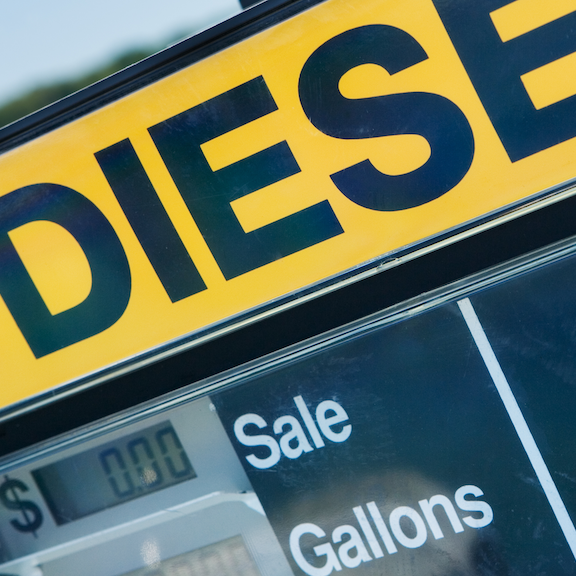To thrive in the fast-evolving marketplace of fuel retail, it’s essential to look beyond the conventional offerings of gasoline and convenience items. The current competitive climate compels gas stations and convenience stores to align with the changing demands of consumers and the tightening grip of environmental mandates. A key player in this shift is Diesel Exhaust Fluid (DEF), a vital agent for contemporary diesel engines that plays a pivotal role in curbing harmful emissions. The management of DEF, however, introduces a complex set of challenges, encompassing specialized requirements for storage, transportation, and bulk procurement. This blog ventures into the detailed landscape of diesel and DEF management, shedding light on the strategic advantages of outsourcing these operations and how it can catalyze operational efficiency and profitability enhancement at your service station.

The Rise of Diesel and DEF
Diesel vehicles are gaining traction due to their fuel efficiency and towing capabilities. This trend extends to passenger cars, with an increasing number of diesel-powered SUVs and trucks hitting the road. Consequently, the demand for DEF, a non-toxic, aqueous solution of urea and water, is projected to reach 11.5 billion liters by 2027, presenting a significant opportunity for convenience stores and gas stations.
Understanding the Landscape
- Diesel Demand: According to the S. Energy Information Administration, diesel consumption in the United States will average 67.7 billion gallons in 2023, with the transportation sector accounting for roughly 85%. This demand is projected to continue, highlighting the potential for gas stations and convenience stores to tap into a reliable revenue stream.
- DEF Dilemma: Modern diesel engines equipped with Selective Catalytic Reduction (SCR) systems require DEF to reduce harmful emissions. DEF usage is expected to rise alongside diesel consumption, presenting an additional revenue stream and a customer service imperative.
Challenges and Solutions
However, navigating the diesel and DEF ecosystem can be complex. Key challenges include:
- Storage: DEF requires dedicated tanks and dispensing systems, separate from gasoline and diesel, to prevent contamination.
- Transport: Bulk DEF delivery requires specialized trucks and equipment to ensure safe and efficient handling.
- Bulk Purchase: Negotiating competitive prices for large DEF volumes can be challenging for smaller stations.
- Management: Maintaining inventory levels, ensuring proper storage conditions, and handling potential spills requires specialized expertise.
Outsourced Management: The Key to Efficiency
Partnering with a reputable outsourced DEF management provider can alleviate these challenges and unlock significant benefits:
- Expert Storage and Dispensing: Providers design and install dedicated DEF tanks and dispensing systems that meet all safety and environmental regulations.
- Efficient Transport: They manage bulk DEF deliveries, ensuring timely and cost-effective replenishment of your inventory.
- Bulk Purchasing Power: Their extensive network allows them to negotiate competitive prices for large DEF volumes, which you can leverage.
- Dedicated Support: They provide ongoing maintenance, technical assistance, and spill response services to ensure worry-free DEF operations.
The Financial Advantage
Outsourced DEF management can lead to substantial cost savings and revenue generation:
- Reduced Capital Expenditure: No need to invest in your storage tanks, dispensing systems, and transport equipment.
- Operational Efficiency: Streamlined processes minimize downtime and resource allocation.
- Competitive Pricing: Access to bulk discounts through the provider’s network.
- Enhanced Customer Satisfaction: Convenient access to DEF attracts and retains diesel-powered customers.
Case in Point
A recent study by the National Association of Convenience Stores (NACS) found that stations offering diesel and DEF experienced an average 5% increase in foot traffic and a 7% increase in overall sales compared to stations without these offerings. Additionally, stations that outsourced diesel and DEF management reported cost savings of up to 10% and a significant reduction in operational workload.
Remember:
- Safety First: Always prioritize safety in handling and storing diesel and DEF. Adhere to all regulations and best practices.
- Customer Focus: Provide excellent customer service by ensuring readily available diesel and DEF, offering convenient refill options, and educating customers about these essential fluids.
- Continuous Improvement: Stay updated on industry trends, regulatory changes, and technological advancements to continuously refine your diesel and DEF operations.
Embracing the diesel and DEF ecosystem presents a lucrative opportunity for convenience stores and gas stations. By partnering with a reliable outsourced DEF management provider, you can navigate the logistical complexities, optimize operations, and unlock significant cost savings and revenue potential. In today’s competitive market, streamlining your DEF operations is no longer a luxury, but a strategic necessity for long-term success.
Want to learn more about transporting oils?
Contact our team today.
